Wisconsin's role in the Civil War origins of absentee voting
The fate of the Civil War hinged on the 1864 election between President Abraham Lincoln and former Gen. George McClellan, and Union soldiers from Wisconsin contributed to the outcome by being among the first absentee voters in American history.
By Steven Potter | Here & Now
October 30, 2024
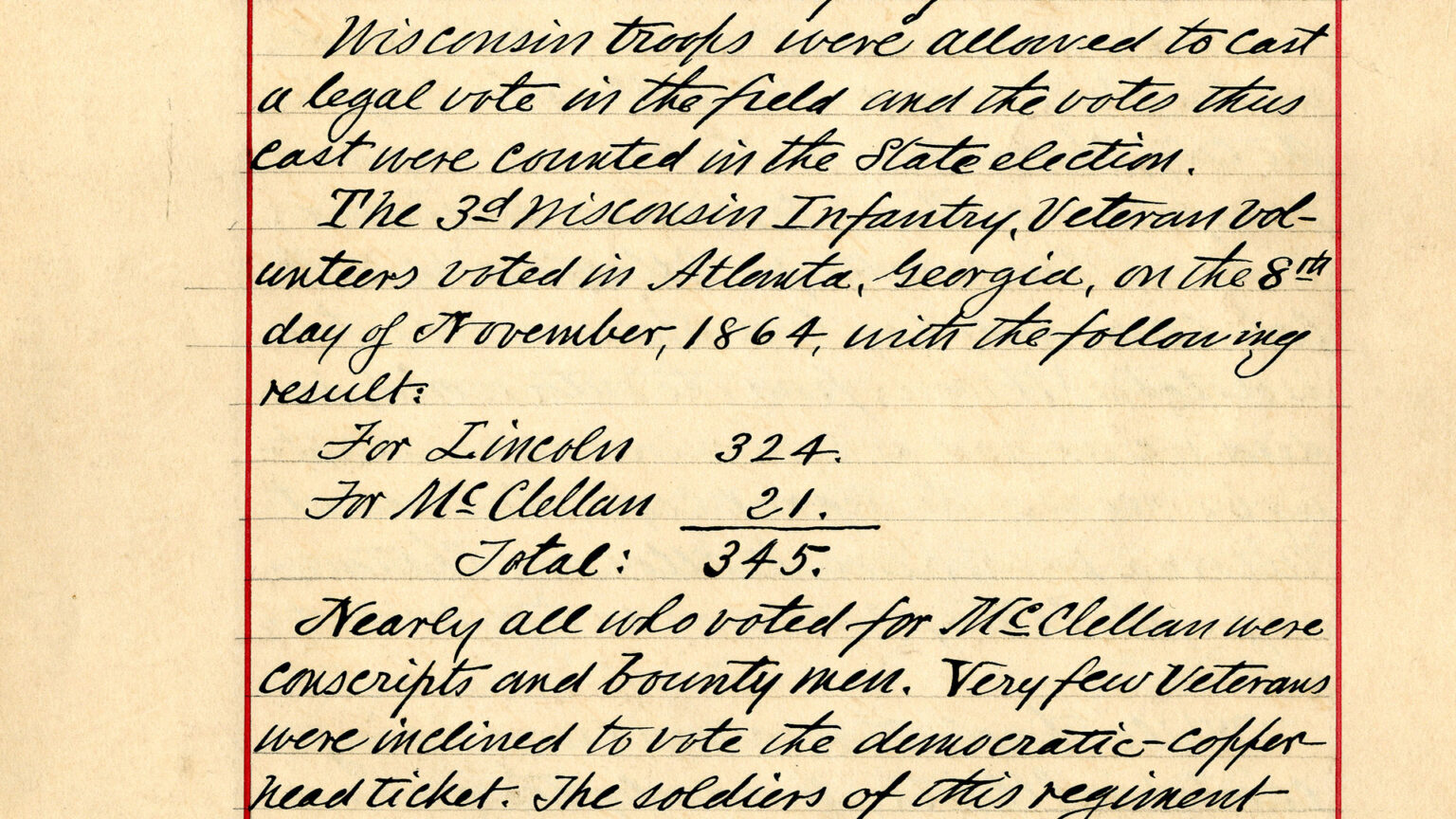
A memoir written by William Goodhue, a Brodhead resident who served in the 3rd Wisconsin Infantry Regiment in the Civil War, described voting on an absentee basis in the 1864 presidential election while stationed in Georgia. (Source: Courtesy of the Wisconsin Veterans Museum)
While absentee voting certainly grew in popularity during the 2020 pandemic election, the first time Wisconsin voters were able to cast their ballots before Election Day dates back much further than that.
Much, much further – like, more than 150 years ago.
Wisconsin was among the first states in the nation to allow absentee voting, dating all the way back to the presidential election of 1864.
Russ Horton, a reference and outreach archivist at the Wisconsin Veterans Museum, found proof of the state’s early adopters of early voting – all of whom were soldiers – in the museum’s documents from the Civil War.
“I knew that we had some Civil War materials related to voting, but I didn’t realize that absentee voting had not been a thing before that,” Horton said. “So that really was an interesting discovery – that the military service of people from Wisconsin and other states in the Civil War is really what drove the establishment of being able to vote away from a polling place.”
Horton found documents that showed men in the Union Army from Wisconsin had cast their vote while out of state in the 1864 election between Republican President Abraham Lincoln and former General George B. McClellan, a Democrat.
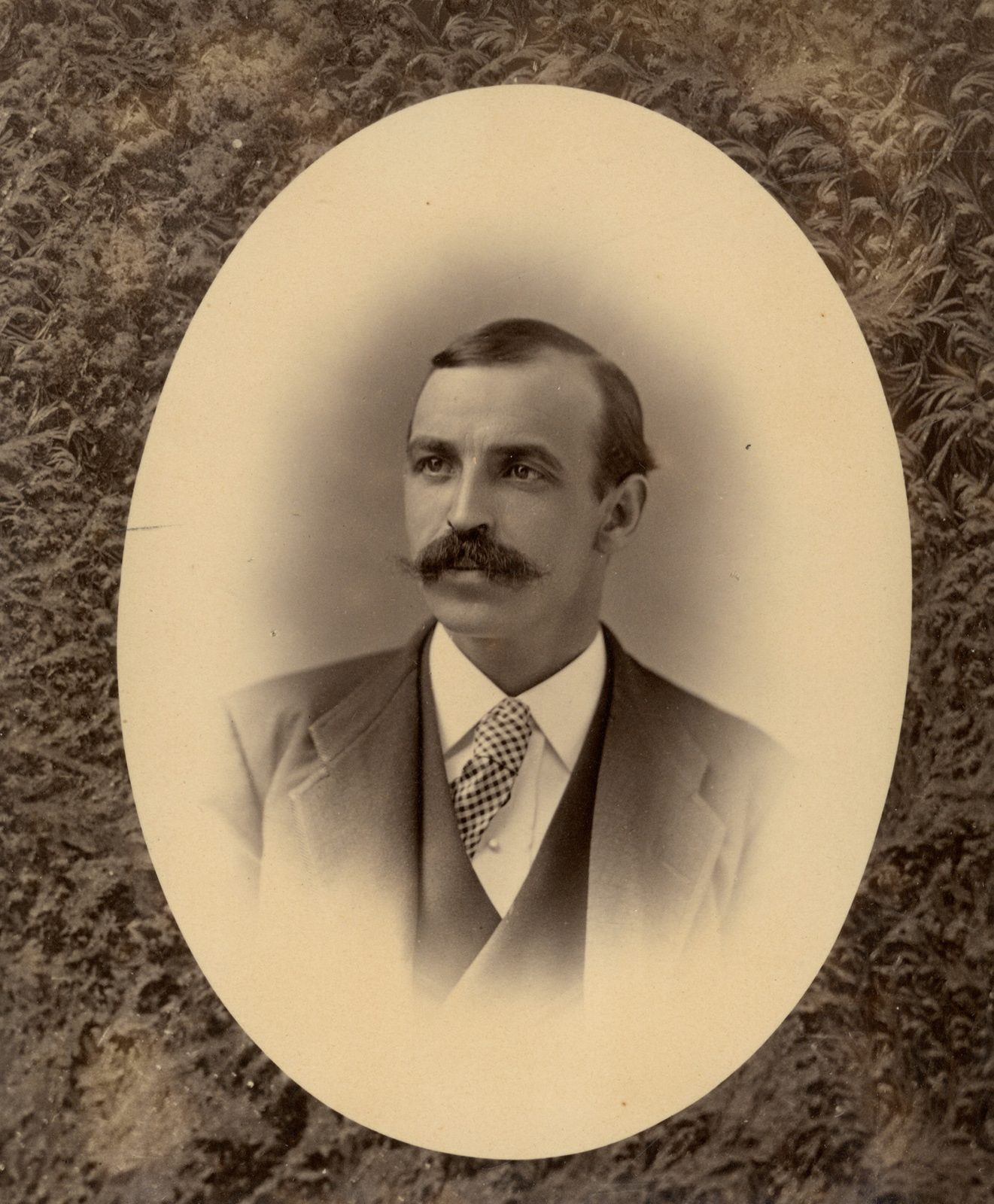
William Goodhue, who was a resident of Brodhead, served in the 3rd Wisconsin Infantry Regiment, which saw extensive action in multiple theaters in the Civil War. (Source: Courtesy of the Wisconsin Veterans Museum)
“Wisconsin sent roughly 80,000 men to serve in the Civil War,” Horton explained. “Around 1862, Wisconsin Gov. Edward Salomon began arguing very strongly for their right to vote out in the field, saying things like ‘The fact that they’re serving their country should not rob them of this right that they’re fighting to defend.'”
Salomon then pushed the state Legislature to take up the matter and later in the fall of 1862, it passed a law allowing soldiers to vote in the field. Horton said that Missouri was the first Union state to make military absentee voting legal, just before Wisconsin did in 1862. He added that the act of having soldiers vote while away at war was a bit of a make-shift process, and that votes were recorded but no ballots were used.
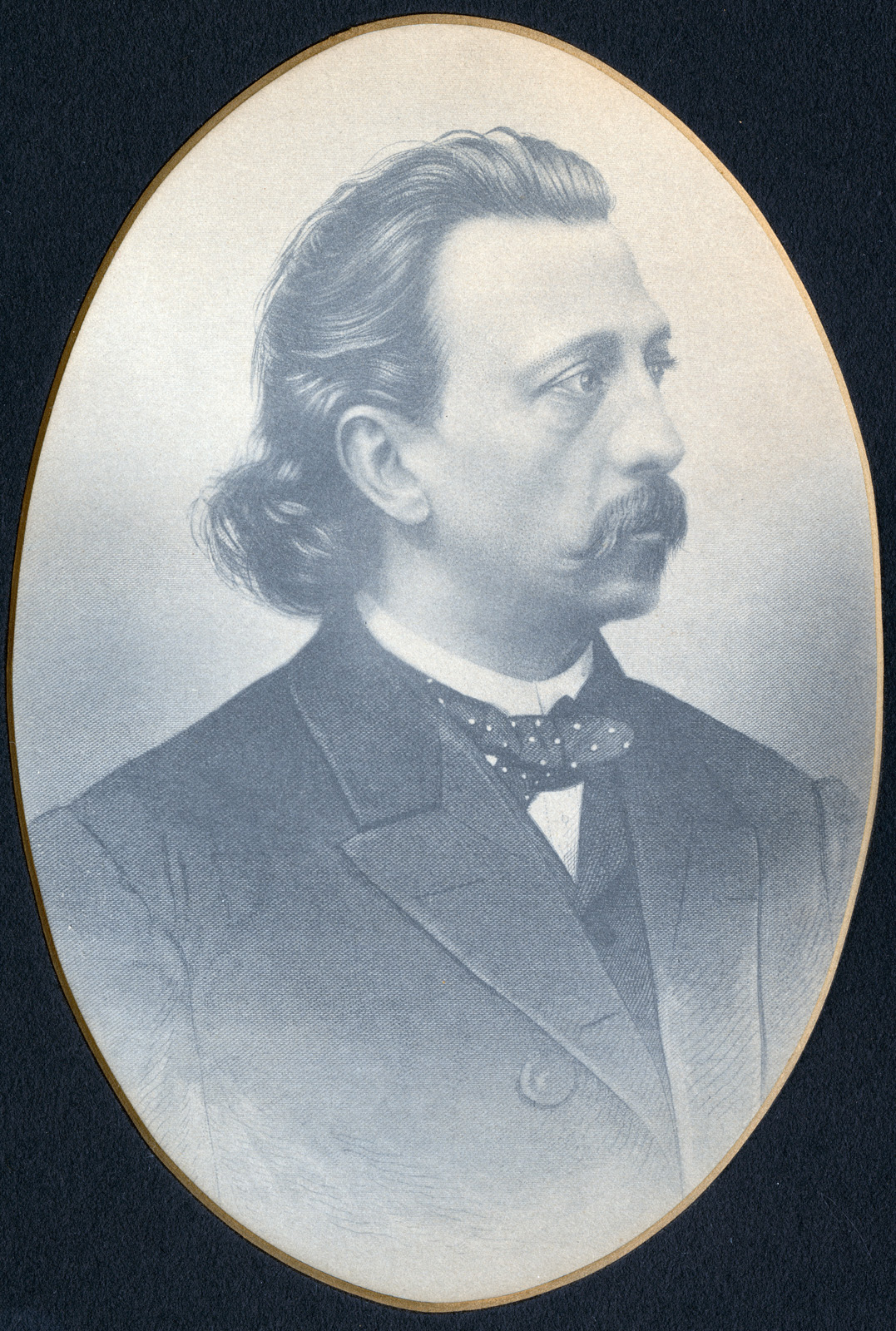
Gov. Edward Salomon pushed for the Wisconsin Legislature in 1862 to pass a law to allow the state’s Union soldiers vote on an absentee basis while serving in the Civil War. Salomon was the eighth governor of Wisconsin. (Source: Courtesy of the Wisconsin Veterans Museum)
“The logistics involved were that the three highest ranking officers in each company – a company was roughly 100 men – served as a kind of de facto election inspector,” Horton explained. “So they made sure that the voters were eligible, and they collected and tallied the votes and sent the results back to the state.”
As to how Wisconsin’s Civil War soldiers voted, Horton pointed to the 1864 vote in the state.
“I would suspect that the voting pattern among Wisconsin soldiers reflected the voting pattern among other residents in Wisconsin – it was strongly in favor of Lincoln,” said Horton.
As was the rest of the nation: Lincoln soundly defeated McClellan, capturing 55% of the popular vote while trouncing his opponent by 212–21 in the Electoral College. Indeed, Lincoln won Wisconsin’s soldiers by a wide margin, receiving widespread support among the troops invested in a final military victory over the Confederacy.
The documents in the museum’s collection from this era includes a tally of votes cast and correspondence between soldiers and their loved ones about who they supported in the election and why.
“[These soldiers] wrote about voting and they wrote about their thoughts on the candidates,” said Horton, adding that the letters were not just some sterile accounting of camp and battle, but were full of emotion and their hopes for life after war. “Soldiers don’t just write about their experiences from a military perspective – they definitely write about other topics that are near and dear to their hearts.”
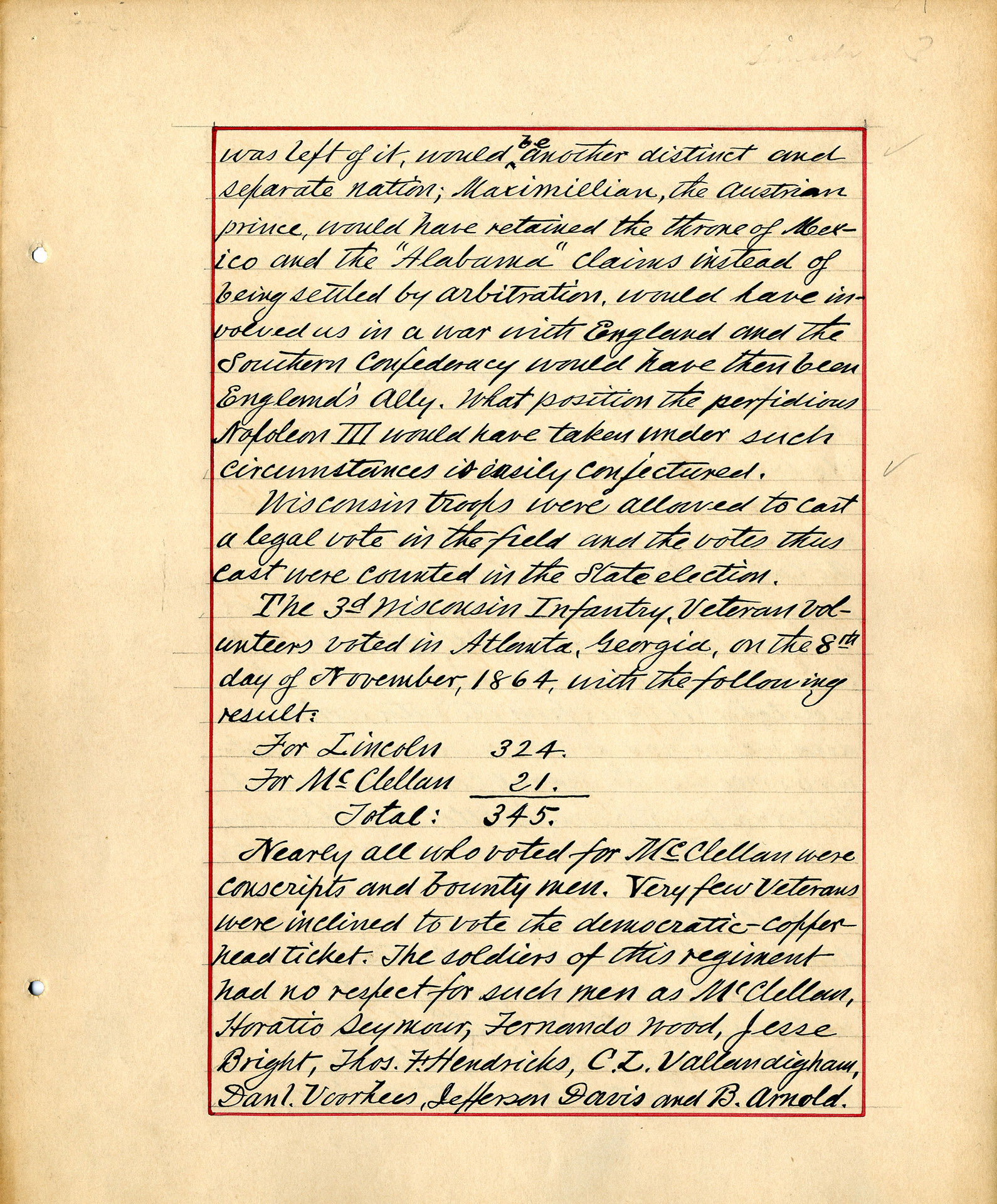
William Goodhue, a Brodhead resident who served in the 3rd Wisconsin Infantry Regiment in the Civil War, later wrote a memoir about his experiences, including a description of voting in the 1864 presidential election while stationed in Atlanta, Georgia following that city’s capture by Union forces under the command of Gen. William T. Sherman. (Source: Courtesy of the Wisconsin Veterans Museum)
Horton added that the Wisconsin Veterans Museum has many more historical documents related to Wisconsin military members voting while deployed outside the United States during wartime. He suggested “a strong connection between the service of women in World War I and the right for women to vote,” as well as the more recent ballots from soldiers during World War II.
Horton also noted that the voting age was lowered from 21 to 18 years old through the 26th Amendment in 1971 because military members deployed in the Vietnam War who were those younger ages deserved the right to vote.
“The theme that runs through this all is the importance of voting and how valued it was among service people. You see it in World War I, World War II, the Korean War – where people are writing about elections and voting and the importance of it, and then at the center of it was Vietnam and changing of the voting age,” Horton said. “Voting is a right that our military defends, and it’s one that’s taken seriously by people in the service.”
 Passport
Passport







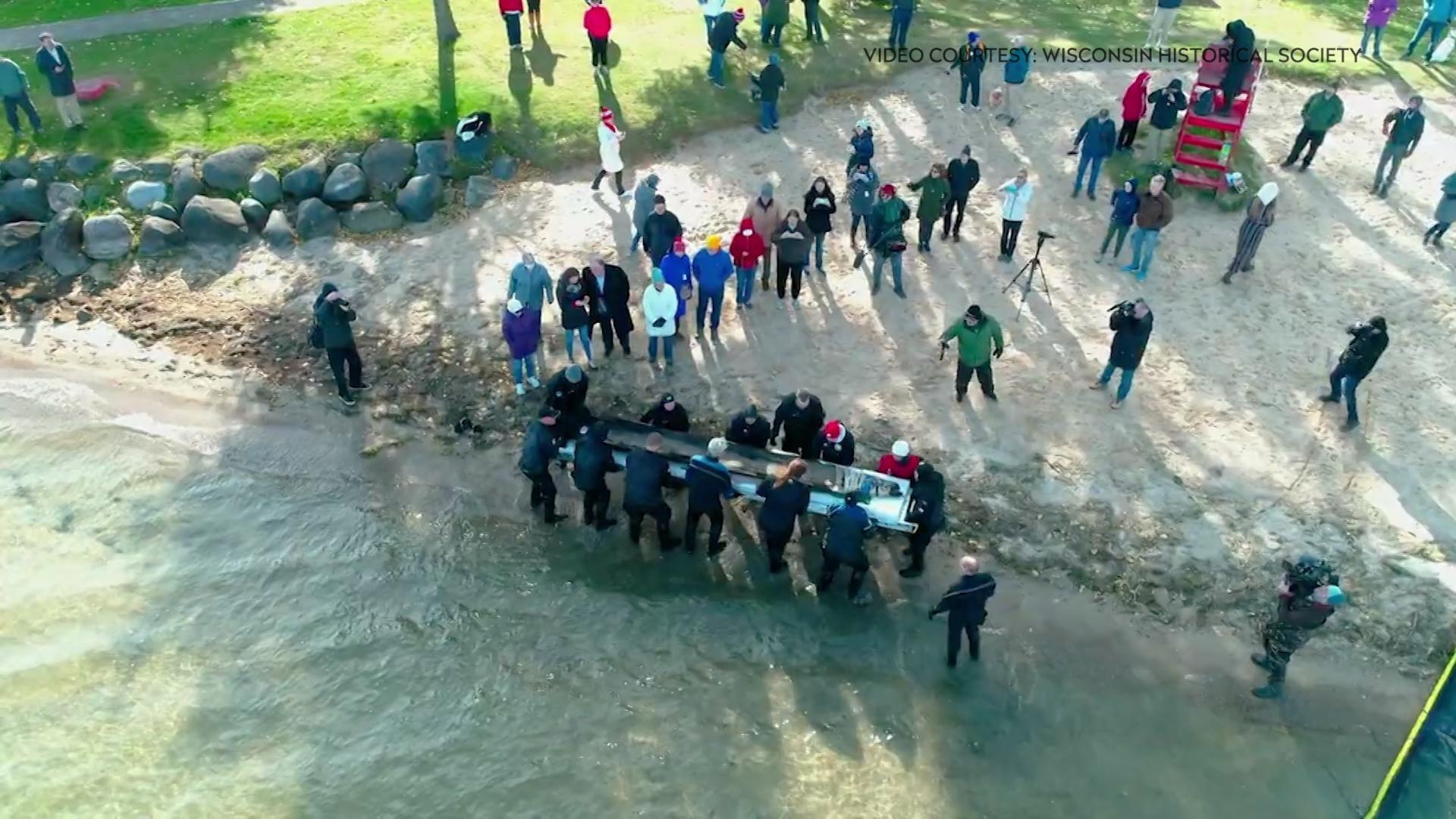



Follow Us